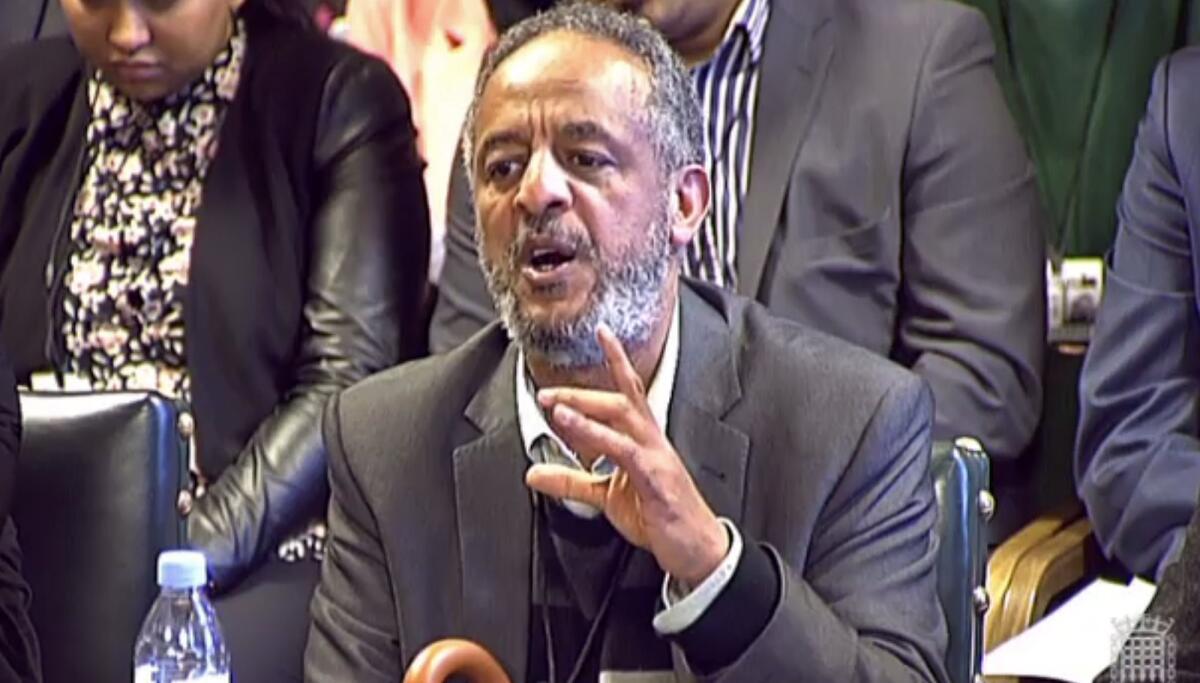Missing British teens’ kin say they had no idea girls were radicalized

- Share via
Reporting from London — Relatives of the three London schoolgirls who traveled to Syria to join the Islamic State told British members of Parliament on Tuesday that they had no idea the teenagers were being radicalized.
The families also criticized police for not directly notifying them that a fourth girl from the same school had traveled to Syria in December, claiming it might have helped them change the course of events.
Speaking in front of the Home Affairs Select Committee, which is investigating the circumstances surrounding the girls’ disappearance, the sister of Shamima Begum described her sibling as an average 15-year-old.
“She used to watch ‘Keeping Up With the Kardashians,’” Sahima Begum said. “There was nothing that indicated that she was radicalized in any way.”
The families said they first realized the girls were missing Feb. 17.
The friends had given their parents an array of excuses to explain their absence for the day, but concern spread when they did not return home that night.
It was not until the next day that police explained that they believed the trio were in Turkey, intent on going to Syria to join Islamic State.
Scotland Yard has said the girls flew to Istanbul on the afternoon of Feb. 17 where surveillance footage shows them waiting at a bus depot for nearly 18 hours before boarding a bus to the city of Sanliurfa, close to the Syrian border.
From there, they are believed to have been transported across into Islamic State-controlled territory by smugglers. Citing unnamed sources, Britain’s Sky News reported Monday that they were in Raqqa, the militant group’s headquarters city.
The lawmakers were told that counter-terrorism officers had spoken to the three girls in December and again in February while investigating the disappearance of a girl from their school, Bethnal Green Academy.
They questioned seven girls in all and gave them a letter they were supposed to give to their parents. Shamima, Amira Abase, 15, and Kadiza Sultana, 16, never passed that letter on, their relatives said.
Amira’s father, Hussen Abase, said he felt “neglected” as a parent that he was not informed directly, adding it was a “heavy burden” to place on a student.
Shamima’s sister said she was aware a student was missing but “the word missing means she’s not at home. Instantly I don’t think she’s gone abroad.”
“In retrospect I think if we had been given information about this first girl, then we would have thought: OK, a friend of hers has gone missing … friends have similar mind-sets. Is her mind-set similar to that? We would question that,” she added.
The families also called on Metropolitan police to apologize after authorities issued a statement which implied the families knew about the letter. It “basically called the families out to be liars,” said Tasnime Akunjee, the lawyer representing the relatives.
Metropolitan Police Commissioner Bernard Hogan-Howe expressed remorse at the situation the families found themselves in.
“I’m sorry that they are in that situation,” he said. “I’m also sorry that the letter we intended to get to them didn’t get through. Clearly that failed … for that we’re sorry.”
He added that police had to strike a balance between warning and worrying people, and protecting the privacy of the family of that first girl who left in December.
The Metropolitan Police’s assistant commissioner, Mark Rowley, said he believes the girls stole family jewelry to pay for their flight to Turkey, and the tickets were paid for in cash at a local travel agent at a cost of more than $1,500.
He also said that 87 families have approached the Met about people they believe have traveled to Syria, and 26 of the cases involve females. Sixty-one people are under the age of 21.
Boyle is a special correspondent.
More to Read
Sign up for Essential California
The most important California stories and recommendations in your inbox every morning.
You may occasionally receive promotional content from the Los Angeles Times.













